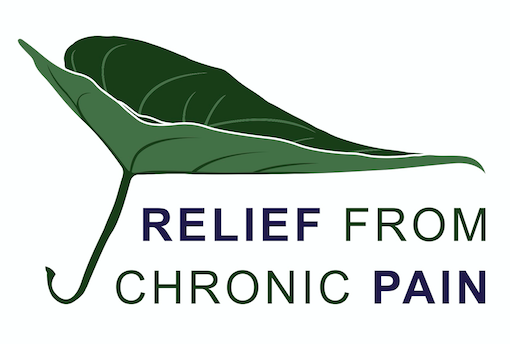Fibromyalgia – The F-Word
Our body holds the score, our muscles resonate with the emotions of having to be right, control issues and events, the ego struggles with doing what is right, guilt and stubbornness go hand in hand, we feel guilty that whatever we do doesn’t help and stick out far longer than the average person in a situation or relationship hoping that things will change, get better, we want to find an answer, surely we must be able to change this? If only we were good enough, if only I was different, if only…..
We are our harshest critics, holding long conversations in our head, if only I had said, if only I had known, if only I hadn’t done that, if only had behaved better/differently, if only ……..
You are adept at denying traumatic events in your life.
As a child you may not have been in a position to influence family, teachers, or change the circumstances and injustices in your life. You will undoubtedly have experienced adverse childhood experiences, and attachment trauma in childhood.
There are 10 types of childhood trauma measured in the ACE Study by Drs. Vincent Felitti and Robert Anda.
Five are personal:
- Physical
- verbal abuse
- Sexual abuse
- Physical neglect
- Emotional neglect
Five are related to other family members:
- A parent who’s an alcoholic
- A mother who’s a victim of domestic violence
- A family member in jail
- A family member diagnosed with a mental illness
- The disappearance of a parent through divorce, death or abandonment
Each type of trauma counts as a score of one. So a person who’s been physically abused, with one alcoholic parent, and a mother who was beaten up has an ACE score of three. Mine scored an 8/10 on the ACE trauma scale. Here is a link to get your Ace score.
There are, of course, many other types of childhood trauma — racism, bullying, watching a sibling being abused, losing a caregiver (grandmother, mother, grandfather, etc.), homelessness, surviving and recovering from a severe accident, witnessing a father being abused by a mother, witnessing a grandmother abusing a father, involvement with the foster care system, involvement with the juvenile justice system, etc. The ACE Study included only those 10 childhood traumas because those were mentioned as most common by a group of about 300 Kaiser members; those traumas were also well studied individually in the research literature.
What you might not be aware of is that Fibromyalgia is driven by guilt, fear, rage and anxiety
- Fear of losing people in your life that resonate with you
- Guilt that you couldn’t or can’t stop bad things from happening
- Rage towards yourself and others who did you injustices both real and perceived
- Anxiety from poor attachments to primary caregivers who at the time were unable to or were unaware of how important attachment is to a baby/young child
Guilt is different to Rage and Anxiety
- Rage is felt as an upward heat or energy sensation, from feet up to your neck then down the arms
- Guilt is felt in the chest as a constriction and pain with thoughts of remorse, it comes in distinct waves
- Grief is pain with thoughts of loss, tears, longing for the past
- Love is felt as a warm sensation in the chest, an urge to embrace
We are often attracted to people who share the same self-sabotaging and unhealthy patterns.
Very often the stress surrounding the final trigger that sets of the Fibromyalgia is not the cause, it is related to problems that have been in our lives for a long time, such as childhood abuse, severe emotional suppression, relationship abuse, religious abuse. It can also be one big incident that triggers it that sets of suppressed emotions from the past.
If you have been trying to suppress explosive emotions, a secondary gain will be using your family members as a reason not to heal – this is a hard thing to accept, even in the most abusive household you will have the most loyal children, you may blame others for your emotional pain but are unable to express it, but someone needs to pay, and the payment comes from you.
Often Fibromyalgia goes hand in hand with Chronic Fatigue (CFS/M.E) it is vitally important for recovery to explore those long held childhood incidents that have built up resentments. Incidents that started a long time ago in childhood are often the problem, you feel controlled, like you don’t have the freedom to make mistakes, you feel you have to be quiet to avoid criticism or judgement, yet your emotions are explosive but you are unable to express them so you stuff them down to a deep layer of grief and disappointment towards circumstances, this often covers your anger and rage, you feel very guilty for moving away from something that could result in you being punished.
As a result the pain that you are experiencing will have completely disassociated you from your physical body – the body has become a separate entity, you are in survival mode.
Key Points
- You feel like a victim of circumstance
- You experience but are unaware of the deep anger, rage and resentment towards a person(s) or situation that caused you to feel controlled, trapped or abused
- You want to be loved in a certain way, your language of love is different from your loved one
- You are sensitive to others emotions and can read situations, your feelings will be constantly on high alert even if you are unaware of it, in flight or fight mode, trying to keep you safe from attack that are both real and imagined. A sensitive child grows into a sensitive adult
- You have worked hard in your life and experienced intense emotions, you might now be the one that wants to be on the end of love, support, safety and nurturing
- You may feel disempowered and dominated by someone in your life, this maybe at home or at work
- You are holding onto deep seated grief, guilt, or suppressed anger and disappointment
- You only feel valued when you are being superwoman/man or super mum/dad, by carrying other’s burdens and responsibilities, this gives you a sense of self, a learned behaviour in childhood, being super responsible, the caregiver, the reliable one, the sensible older sibling.
- You feel unsure of what to do next in life, you don’t recognise yourself anymore, what has worked for you in the past is no longer serving you
If you have experienced trauma and anxiety in your childhood and you have never been able to deal with it, either because you have kept yourself so driven as to not stop long enough to take time to feel or think about it, or repressed your feelings as they were too painful to contemplate or are just not able to remember what happened in your childhood, it can become an even bigger issue in adult life, affecting you in more ways than one.
If after reading this you would like to talk to a professional about any emotional issues that have come up for you then please get in touch: carole@chronicpainreliefonline.clinic

